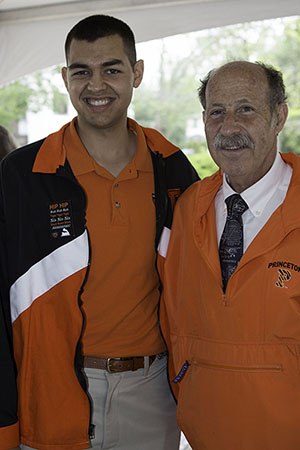
Mechanical and Aerospace engineers design, build and test devices and vehicles, such as cars, aircraft, satellites, engines, robots, and control systems. Increasingly, electronics, computers, and mechanical devices are more and more integrated, and mechanical and aerospace engineers must have very broad knowledge and training in order to perform their jobs at the highest level. Our program emphasis is to provide an education in the fundamentals of engineering as required for the understanding and application of physical phenomena. We follow a broad system approach, where engineering decisions are made with a full appreciation of the opportunities and limitations presented by advanced technologies and their integration.
The Department recognizes that our students follow a variety of career paths. Some enter industry directly as practicing engineers while others continue their studies in graduate school in the fields of engineering or applied science. Others follow our program in preparation for careers in business, law or medicine. Some students enter the military. Others begin their own companies. For the Class of 2018, 22% of graduates decided to continue their studies in graduate school in engineering such as Boston University, Georgia Tech, U Michigan, U Penn, Stanford, Cornell, Johns Hopkins, MIT, and Oxford. 39% chose a technical career in industries such as Virgin Orbit, CBRE Digital & Tech, Momentum Solar, Space X, Reebeez, Schlumberger, Navatek Ltd, IBM Global Business Services, Boom Supersonic, CB Partners, Lockheed Martin, Rivian Automotive, General Motors, Microsoft, General Dynamics, United Airlines, DMC Inc., and RELX Group.
We respond to our student's varied interests by offering interdepartmental programs and topical programs. Sufficient flexibility is provided to meet a range of career objectives while providing a foundation of the engineering disciplines and associated problem solving skills.